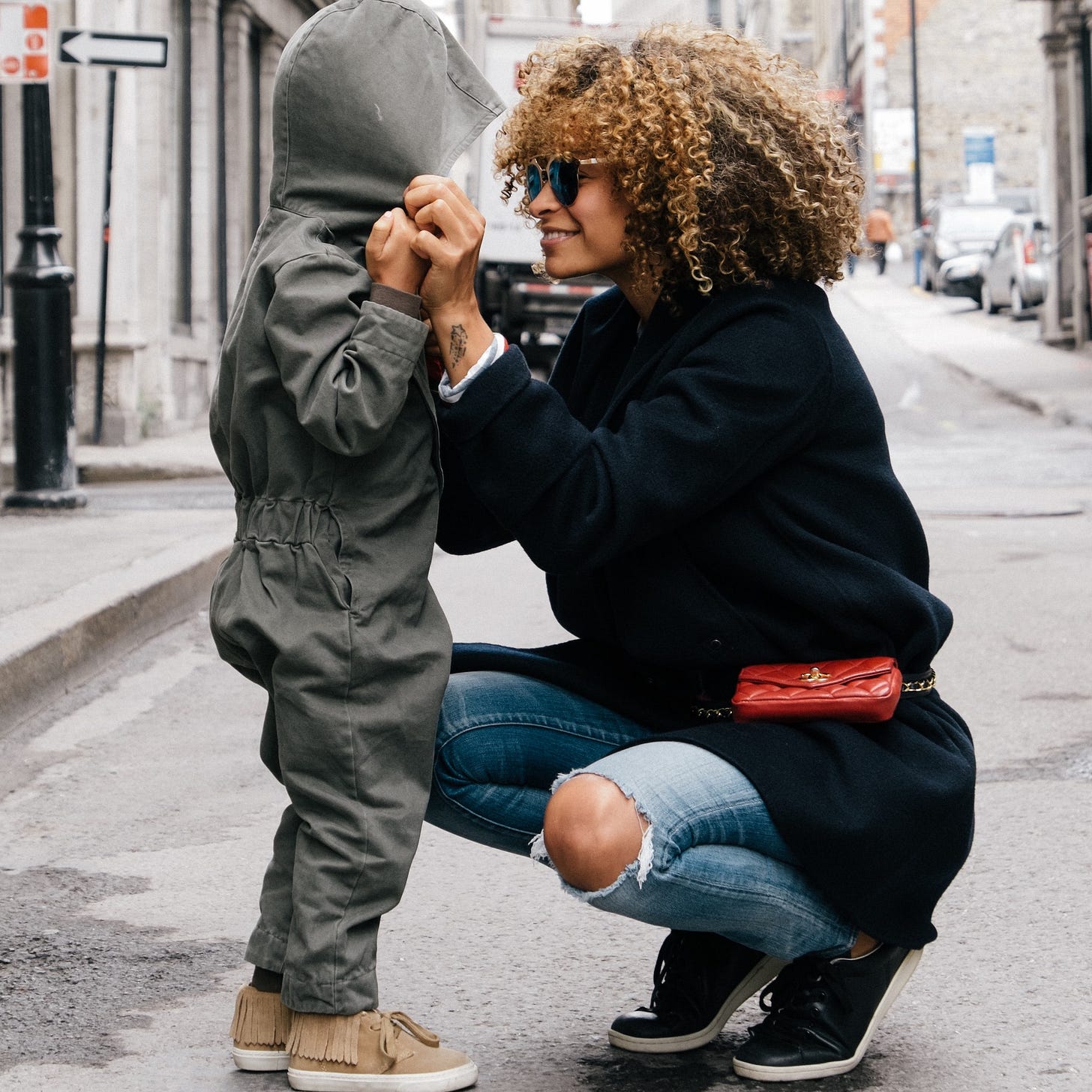Honestly, how much do you trust your children or students?
I have a feeling that we claim to trust them more than we actually do. And I'll try to make the case here that if we built a stronger foundation for trust, and allowed that to shape how we treat young people, then it might lead to significantly better outcomes.
But first, let me share a basic premise I have. It may sound dark but it's not intended to be.
A friend once asked me over dinner, how do you feel about the education system as a whole?
An answer came out of my mouth before I knew what I was saying: "Our education system is like the healthcare system in the middle ages."
Ouch! I immediately regretted saying it. I felt like a cynic, and uncaring about all the people — including many of my closest friends — who are working so hard in this system. But I can't really deny that I believe it.
It wasn't intended to be cynical, though. It's because I love to imagine where education can go, and it feels like as big of a leap as going from a medieval hospital, which my overactive imagination fills with screams and unsanitized sharp instruments — a place where you're guaranteed to be traumatized — to some kind of warm, plant-filled health center that blends advanced medical technology with trained and caring holistic doctors. Yes, I know that's rare even in our medical system now. But it's imaginable. And in the future, not a utopian one but with some reasonable optimism, I think we'll look back on our current schools as truly medieval. I think we'll have built learning centers that are more humane, that avoid many of the rigid, fear-based rules that govern us today, and that access much more of our human potential.
So, how does this relate to the concept of trust?
It's this: I think that our current schools are built on profound mistrust of young people. Many of our schools look and operate like prisons. They assume that learning requires heavy use of incentives and punishments. They rarely ask for consent. The older a student gets, the less their interests matter (paradoxically, as they have more and more interesting things to say). Our fears about their "competitiveness" with others are used to justify removing most of their free choice, filling their schedules, and pressurizing them with stress and fear about accessing the next stage of education. You get the idea. We don't trust them to do the right thing. Not even close.
In case we progressive educators and parents think we've avoided this...I have a sneaking suspicion that we are fooling ourselves. Take progressive schools. We can create project-based learning (PBL) classes that are truly much more engaging and much more effective. And yes, most students coming from a traditional school rejoice when they're in well-run PBL environments, because they can be social, they feel the work is more relevant, and they combine abstract thinking with hands-on elements, and more. But — but — most of these projects are created by adults. Student involvement in selecting them is often token. Students are graded whether they want to be or not. They're pressured to pour their hearts into every project even if they never chose it and don't like the topic at all. They still have to finish on the adult timeline, impress the adults at the end, and then prepare for the next adult-led experience. This system does not show a lot of trust in students here either.
Trust in short supply. And yet trust is a kind of magical ingredient in relationships. People can feel it. What adolescent has not yearned to be trusted with more freedom (not always meaning they were ready for it) by the adults in their lives? How many of us have experienced the loss of trust in a friendship or a romantic relationship, with devastating consequences, and hopefully also know how deeply good it feels to trust and be trusted by another? Trust activates us.
In my own household, it has been dawning on me how often I act without trust toward my own children. I've been trying to experiment with offering more. We often talk about screentime, for example, and I have been trying not to assume that my children are just wanton consumers, ready to soak up every second of screentime we allow them. When we talk about it with trust, something shifts for both me and them. I start to listen differently and believe them more — maybe they're right, maybe some screentime is not only fun but stimulating and valuable. They start to offer suggestions that are thoughtful compromises, not just demands for the opposite of what I've said. Even my five year old recently sat me down and explained her proposal for a different set of rules around screens. She took herself seriously, I took her seriously, and I felt in that moment far less like a suspicious jailkeeper, and instead more like a guide. It was relaxing and fun. I think she could feel that I trusted her to have a thoughtful point of view on this.
For those of us in schools, I recently came across a fascinating model that applies this idea to classes. It's called the Sun Model of Co-Agency, and it was created by students through the OECD Future of Education and Skills 2030 project. Better than any model I've yet seen, it gives a shatteringly blunt set of criteria for how much agency (aka trust) students are given by adults. From Level 0 (Silence), to Level 3 (Tokenism), to the maximum Level 8 (Young people-initiated, shared decisions with adults), it describes what you could think of as a ladder of trust. Check out the chart below — where do you stand on this with your children or students?

If this resonates with you, what are we to do?
First, let's acknowledge that most of us have been educated in ways that make us feel un-trustworthy. It’s natural that we hold this same bias toward our own students or children. And then let's acknowledge that for someone who has been treated as if they can't be trusted, it will take time to shift their mindset, and it's possible to do damage by suddenly trying to give total trust and then finding ourselves disappointed that they don't yet know what to do with it (because it's so new!). With those caveats in mind, here are three suggestions:
1. Listen differently. A hallmark of trust is that we believe when someone speaks, it is important. Imagine the wisest person you know—they call you up one day to say they've just had an insight and wanted to share it. You would probably listen closely, with curiosity and trust that what they say will be valuable. Could you bring some of that spirit to the next conversation you have with a child? They may surprise you and themselves with how honestly they speak. Or they may just tell you the fart joke they've been saving up. Don't expect miracles, but remember that the quality of your listening builds trust over time.
2. Consider consent. Those of us parenting or working with adolescents probably associate the word "consent" with sex ed, but what if we applied this more broadly? How often do we ask for the consent of a child before we force them into an educational experience — especially one in which they will be judged and compared on someone else’s terms? I'm not saying we all have to unschool our children and banish all requirements. But arguably we are so used to ignoring consent that we don’t even stop to explain why something is required. Each time you act without consent, you are demanding passivity. That’s probably not the virtue we’re going for.
3. Experiment with real power. It's hard to raise someone who understands democracy, or how to contribute to a more harmonious community, if they don't have time to practice. Most schools are dictatorships, and honestly, our large school districts function in a manner very reminiscent of the Soviet Union, with central committees attempting to plan the detailed lives of people very far away. These are not great examples of sharing power and using it together. We can do better. Schools can experiment with student governments that have real decision making power. The Town Hall process I described in a recent post is just one of many examples. Kids are too smart to be fooled by token systems, or to care enough to take them seriously. They need to be trusted to make decisions of real importance for their school or community. How else would they learn to make good decisions together?
So there you have it. When we treat young people with trust, even if their response is not immediate, it will change how they see themselves. It will draw out more of their abilities and ideas. And it will improve the quality of their relationship with us — how could it not? And we know that those relationships are the basis for their growth and learning. Most of us learned as kids that we weren't trustworthy. But we don't have to act that way now. Our kids deserve better.
A few other updates…
Book Update!
I’m happy and a little stunned to watch my book, Finding the Magic in Middle School, travel in the world and open interesting doors I had never noticed before. Whether in book clubs, or through speaking at conferences and schools, or just notes from a reader it touched, it seems to be tapping into something. What if middle school was not actually the worst time in life — just perhaps the worst-understood? If you’re hoping to shift and find the potential of this age, I hope the book will be useful to you!
Advisory Training
We have a small number of spots left for our advisory facilitation training this July in San Francisco, a three-day dive into how to facilitate deep, honest conversations for young people. It’s a way to make advisory time into a powerful social-emotional learning space, and a place of unconditional belonging. Details here.






I agree.
I’ve always thought that raising children is much like the process of teaching them to drive a car. At first, they need the full overview of road rules, functions of knobs and pedals, and then hit the road. Once there, the only way they can learn to drive is to control the whole car: gas, steering, brakes. If we keep grabbing the wheel, they aren’t learning. I always reminded myself that the ultimate end of the driver training is to hand them the keys and watch them drive off around the corner, without me. Somehow they need to learn everything before that day. It is frightening, but with trust, transferring knowledge needed to understand the process and goal, and lots of practice, it works.
Thanks for writing this! I rarely find someone with a view like this towards raising adolescents, and children in general. It was a very refreshing read and I cross-posted it, because its just SO spot-on! :)